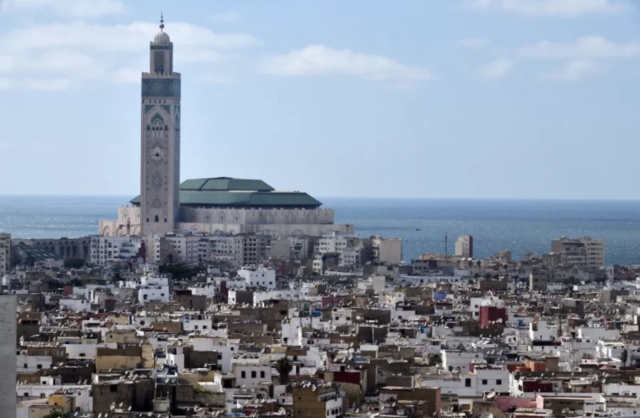Morocco and Israel have had cooperative relations for years. Israelis of Moroccan descent have traveled back to see where their families lived, and the small Jewish communities of Rabat and Casablanca were generally respected and left alone. There was trade in the amount of $37 million in 2017, and it is growing. Before the pandemic, nearly 50,000 Israelis visited Morocco annually and more than 2,000 Moroccans visited Israel in 2019. Things were going nicely, albeit quietly—so why make it public now?
Because both countries had something to gain—and not only American recognition of Moroccan sovereignty over Western Sahara. The world is changing in ways that are both positive and negative and, for rulers like Morocco’s King Mohammed VI, hiding from the negative is not a good option. Instability in both North Africa and the second tier of African countries—Sudan, Chad, Niger, Mali, Mauritania and Nigeria—is threatening chaos. In the best of times, those countries represent difficult amalgams of (sometimes violently) competing religions, multiple (and sometimes violent) ethnic groups, corrupt governments and poverty. But these are not the best of times, and flames are being stoked by Iran, ISIS, the Muslim Brotherhood and al-Qaeda.
King Mohammed VI, as a direct descendant of the Prophet Muhammad, has enormous standing among Muslims, particularly in Africa, and the form of Islam he promotes is entirely different from that of Iran’s mullahs, al-Qaeda or ISIS. Al-Karaouine University is the oldest still-functioning university in the Islamic world. Founded in 859 C.E. by a female scholar, it has formulated family law that gives women rights in divorce and property ownership, and citizenship to children of non-Moroccan fathers. Female chaplains, called Morchidat, work in Muslim communities around the world. There is more, but it is enough to know that this road is a better fit for a multi-religious, multi-ethnic Africa than those envisioned by radical Islamists.
But the king needs partners—which accounts for Israel, and perhaps also for Israeli Prime Minister Benjamin Netanyahu’s planned visit to Cairo.
A little history is useful here. Israel faced a wall of rejection in the Middle East and North Africa from before its independence in 1948, but in much of the rest of the post-colonial, developing world, Israel—small, post-colonial, socialist—was a partner.
Consider how Cuba—Communist Cuba under Fidel Castro—was, for a time, a friend of Israel. Israeli agricultural workers were common, and when Israeli President Yitzhak Ben Zvi died in 1963, Castro declared three days of official mourning. Algerian dictator Ahmed Ben Bella subsequently canceled his trip to Havana; Castro said he didn’t care. Under pressure after 1967’s Six Day War to sever relations, Castro refused. Only in 1974—angling to become chairman of the Non-Aligned Movement and under pressure from oil-rich Arab countries—did Castro cut Israel loose.
Ditto the African countries. After 1973’s Yom Kippur War, 25 African countries severed diplomatic relations with Israel—and canceled ongoing water and agriculture projects under pressure from both the Arab League and the Organization of African Unity. The African states knew it was a bad deal and jumped to re-establish relations following the Oslo Accords. The 20-year hiatus didn’t hurt Israel nearly as much as it did the people of those countries who threw away Israel’s advanced technology and capabilities.
At the opening of the third decade of the 21st century, it is time for a reckoning.
- The so-called “Arab Spring” was a disaster for the people of the region.
- U.S. policy there, and in the wars that followed, was not attuned to the needs of the people there.
- The emergence of the U.S. as an energy exporter has made the traditional Arab oil-exporting countries less powerful.
- The emergence of China as a lender that calls its loans and has acquired billions of dollars of hard assets in Africa further strains shaky African economies.
- Iran’s funding and training of both Sunni and Shiite jihadists strains shaky African and Arab governments even more.
Better, then, to band together for mutual economic, political and security interests. To wit: Sudan, having just been justly removed from the U.S.’s state sponsors of terrorism list, Egypt, Morocco, the United Arab Emirates, Bahrain, the acquiescent but not-quite-yet-ready-to-jump Saudi Arabia and the ever-hiding-under-the-covers Jordan. Plus Israel. What a lineup!
Still, though: Why now? In part, at least, because there will soon be a change in the American administration from one that saw Iran for the evil that it is and the hegemon it aspires to be, to an American administration that has announced itself ready to figure out how to engage the mullahs. Kudos to King Mohammed VI for seizing the opportunity.






